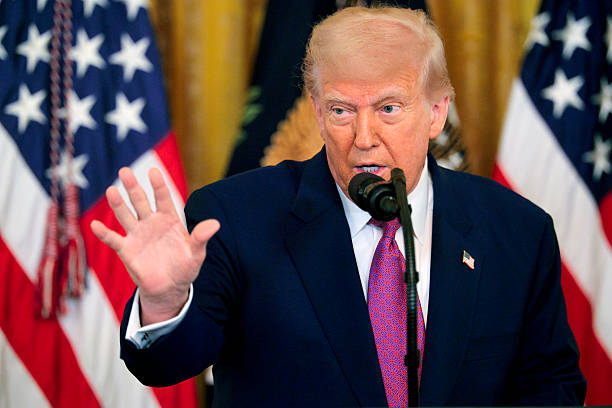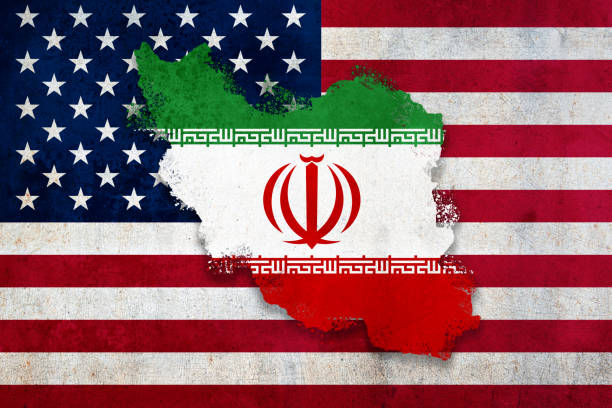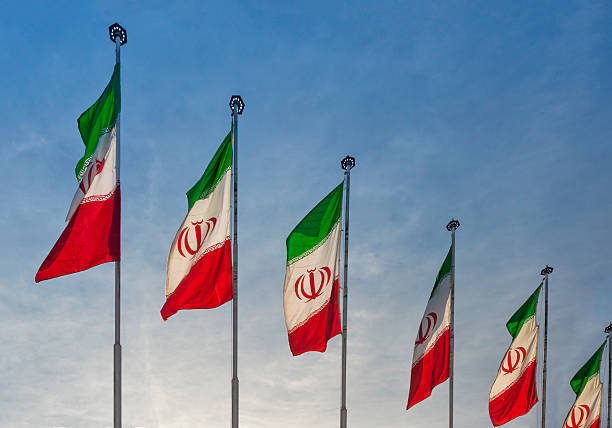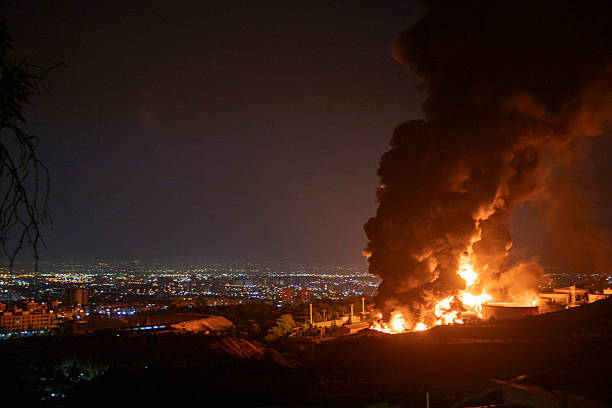Trump Announces Ceasefire Between Israel and Iran After Missile Strike on U.S. Base in Qatar
President Trump announced a ceasefire between Israel and Iran after Iran’s missile attack on a U.S. base in Qatar, which caused no casualties and heightened regional tensions.
 WASHINGTON, DC - JUNE 12: U.S. President Donald Trump takes questions after signing a series of bills related to California’s vehicle emissions standards during an event in the East Room of the White House on June 12, 2025 in Washington, DC.
WASHINGTON, DC - JUNE 12: U.S. President Donald Trump takes questions after signing a series of bills related to California’s vehicle emissions standards during an event in the East Room of the White House on June 12, 2025 in Washington, DC.President Donald Trump on Monday declared a “complete and total” ceasefire between Israel and Iran, set to be implemented over the next 24 hours, following a tense day of military confrontation and diplomatic uncertainty in the region. The announcement came hours after Iran launched a missile attack on Al Udeid Air Base in Qatar in retaliation for recent U.S. strikes on Iranian nuclear sites.
Neither Israel nor Iran had officially commented on the ceasefire declaration at the time of Trump’s announcement.
“On the assumption that everything works as it should, which it will, I would like to congratulate both Countries, Israel and Iran, on having the Stamina, Courage, and Intelligence to end, what should be called, ‘THE 12 DAY WAR’,” Trump wrote on his Truth Social platform.
U.S. military officials confirmed that the attack on Al Udeid Air Base, located just outside Doha, was the only known Iranian strike targeting American forces. A total of 19 missiles were fired from Iran, with only one reportedly hitting the base and causing no casualties or significant damage. Qatar’s Ministry of Defence said its air defence systems successfully intercepted most of the incoming missiles, crediting the vigilance of its armed forces and existing precautionary measures.
A U.S. defense official stated, “At this time, there are no reports of US casualties. We are monitoring this situation closely and will provide more information as it becomes available.”
President Trump characterized Iran’s response as “very weak” and expressed gratitude toward Iranian leadership for providing “early notice” of the missile strike. “Most importantly, they’ve gotten it all out of their ‘system,’ and there will, hopefully, be no further HATE,” Trump added.
Following the missile launches, Iranian Supreme Leader Ayatollah Ali Khamenei stated on social media, “We have not violated anyone’s rights, and we will not under any circumstances accept any violation against us, nor will we surrender to anyone’s aggression.” Iranian Foreign Minister Abbas Araghchi echoed this stance, warning that Iran remains prepared to respond if the U.S. escalates further.
The Iranian government emphasized that the strike was aimed far from populated areas and did not endanger Qatar’s citizens. “This action does not pose any threat to the friendly and brotherly country, Qatar,” said Iran’s Supreme National Security Council in a statement, affirming Iran’s commitment to maintaining strong bilateral ties.
Despite this, Qatar condemned the attack as a “blatant violation” of its sovereignty. Loud explosions were heard across Doha during the attack, and flares lit up the sky as defense systems responded. Al Jazeera’s Dorsa Jabbari, reporting from Doha, described the incident as “a very dramatic experience” for residents, who are unaccustomed to such military activity.
Qatar confirmed its airspace was temporarily closed to ensure safety and has since reopened it. Other Gulf nations, including Kuwait, Oman, Bahrain, and the UAE, also shut down their airspace briefly but have now resumed normal operations.
Reporting from Tehran, Al Jazeera’s Tohid Asadi noted that it remains unclear whether Iran considers its response to the U.S. strikes complete. Iran continues to frame the situation as part of a broader confrontation involving the U.S., Israel, and their European allies, whom it accuses of enabling Israeli military operations.
Al Jazeera’s Kimberly Halkett reported from Washington, D.C., that Trump received briefings in the White House Situation Room rather than the Oval Office due to the unfolding events. The Pentagon, according to officials, remains on high alert but is not tracking additional threats to U.S. bases in the region.
Officials noted that infrastructure at Al Udeid had been evacuated in advance of the Iranian strike, and the Iranian missile barrage appeared to be calibrated to mirror the scale of the earlier U.S. assault on Iranian nuclear sites.
Al Udeid, established in 1996, is the largest U.S. military base in the Middle East. It houses nearly 10,000 troops, approximately 100 aircraft and drones, and serves as the forward headquarters for U.S. Central Command (CENTCOM), supporting military operations across Iraq, Syria, and Afghanistan.
Marwan Bishara, Al Jazeera’s senior political analyst, said the developments marked a significant escalation, noting that it was the first time Iran had directly targeted a U.S. military base outside of Iraq. He also described Israel’s and the U.S.’s recent military actions as unprecedented in their scope and strategic intent.
As regional and international actors continue to monitor the unfolding situation, the announced ceasefire marks a potentially pivotal moment in the short but intense conflict now being referred to as the “12 Day War."





.jpg)

Conversation